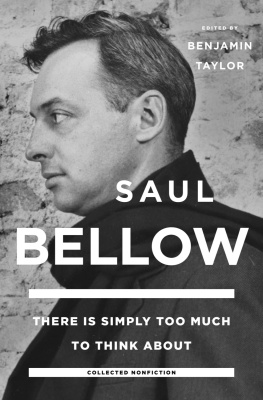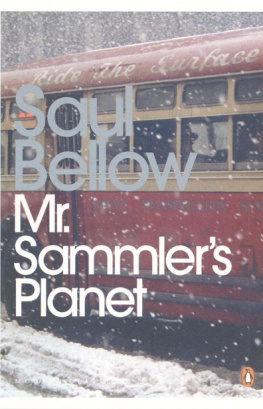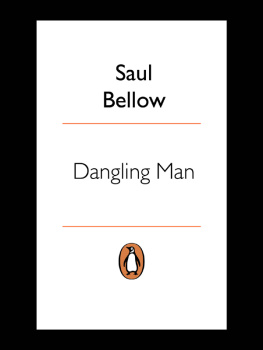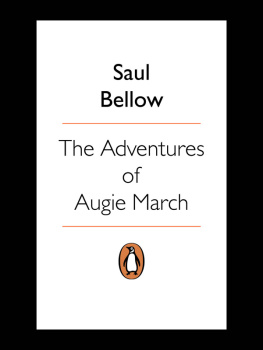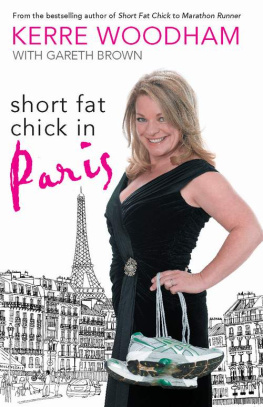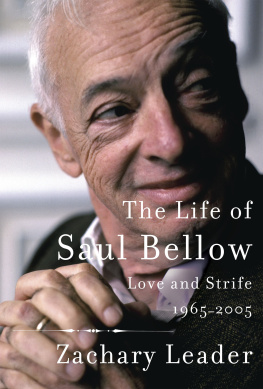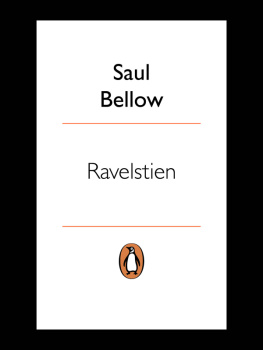Odd that mankind's benefactors should be amusing people. In America at least this is often the case. Anyone who wants to govern the country has to entertain it. During the Civil War people complained about Lincoln's funny stories. Perhaps he sensed that strict seriousness was far more dangerous than any joke. But critics said that he was frivolous and his own Secretary of War referred to him as an ape.
Among the debunkers and spoofers who formed the tastes and minds of my generation H. L. Mencken was the most prominent. My high school friends, readers of the _American Mercury__, were up on the Scopes trial as Mencken reported it. Mencken was very hard on William Jennings Bryan and the Bible Belt and Boobus Americanus. Clarence Darrow, who defended Scopes, represented science, modernity, and progress. To Darrow and Mencken, Bryan the Special Creationist was a doomed Farm Belt absurdity. In the language of evolutionary theory Bryan was a dead branch of the life-tree. His Free Silver monetary standard was a joke. So was his old-style congressional oratory. So were the huge Nebraska farm dinners he devoured. His meals, Mencken said, were the death of him. His views on Special Creation were subjected to extreme ridicule at the trial, and Bryan went the way of the pterodactyl-the clumsy version of an idea which later succeeded-the gliding rep tiles becoming warm-blooded birds that flew and sang.
I filled up a scribbler with quotes from Mencken and later added notes from spoofers or self-spoofers like W. C. Fields or Charlie Chaplin, Mae West, Huey Long, and Senator Dirksen. There was even a page on Machiavelli's sense of humor. But I'm not about to involve you in my speculations on wit and self-irony in democratic societies. Not to worry. I'm glad my old scribbler has disappeared. I have no wish to see it again. It surfaces briefly as a sort of extended footnote.
I have always had a weakness for footnotes. For me a clever or a wicked footnote has redeemed many a text. And I see that I am now using a long footnote to open a serious subject-shifting in a quick move to Paris, to a penthouse in the Hotel Crillon. Early June. Breakfast time. The host is my good friend Professor Ravelstein, Abe Ravelstein. My wife and I, also staying at the Crillon, have a room below, on the sixth floor. She is still asleep. The entire floor below ours (this is not absolutely relevant but somehow I can't avoid mentioning it) is occupied just now by Michael Jackson and his entourage. He performs nightly in some vast Parisian auditorium. Very soon his French fans will arrive and a crowd of faces will be turned upward, shouting in unison, _Miekell Jack-sown__. A police barrier holds the fans back. Inside, from the sixth floor, when you look down the marble stairwell you see Michael's bodyguards. One of them is doing the crossword puzzle in the _Paris Herald__.
"Terrific, isn't it, having this pop circus?" said Ravelstein. The Professor was very happy this morning. He had leaned on the management to put him into this coveted suite. To be in Paris-at the Crillon. To be here for once with plenty of money. No more of the funky rooms at the Dragon Volant, or whatever they called it, on the rue du Dragon; or in the Hotel de l'Academie on the rue des Saints Peres facing the medical college. Hotels don't come any grander or more luxurious than the Crillon, where the top Ameri can brass had been quartered during the peace negotiations after the First World War.
"Great, isn't it?" said Ravelstein, with one of his rapid gestures.
I confirmed that it was. We had the center of Paris right below us-the place de la Concorde with the obelisk, the Orangerie, the Chambre des Dputs, the Seine with its pompous bridges, palaces, gardens. Of course these were great things to see, but they were greater today for being shown from the penthouse by Ravelstein, who only last year had been a hundred thousand dollars in debt. Maybe more. He used to joke with me about his "sinking fund."
He would say, "I'm sinking with it-do you know what the term means in financial circles, Chick?"
"Sinking fund? I have a rough idea."
Nobody in the days before he struck it rich had ever questioned Ravelstein's need for Armani suits or Vuitton luggage, for Cuban cigars, unobtainable in the U. S., for the Dunhill accessories, for solid-gold Mont Blanc pens or Baccarat or Lalique crystal to serve wine in-or to have it served. Ravelstein was one of those large men-large, not stout-whose hands shake when there are small chores to perform. The cause was not weakness but a tremendous eager energy that shook him when it was discharged.
Well, his friends, colleagues, pupils, and admirers no longer had to ante up in support of his luxurious habits. Thank God, he could now do without the elaborate trades among his academic pals in Jensen silver, or Spode or Quimper. All of that was a thing of the past. He was now very rich. He had gone public with his ideas. He had written a book-difficult but popular-a spirited, intelligent, warlike book, and it had sold and was still selling in both hemi spheres and on both sides of the equator. The thing had been done quickly but in real earnest: no cheap concessions, no popularizing, no mental monkey business, no _apologetics__, no patrician airs. He had every right to look as he looked now, while the waiter set up our breakfast. His intellect had made a millionaire of him. It's no small matter to become rich and famous by saying exactly what you think-to say it in your own words, without compromise.
This morning Ravelstein wore a blue-and-white kimono. It had been presented to him in Japan when he lectured there last year. He had been asked what would particularly please him and he said he would like a kimono. This one, fit for a shogun, must have been a special order. He was very tall. He was not particularly graceful. The great garment was loosely belted and more than half open. His legs were unusually long, not shapely. His underpants were not securely pulled up.
"The waiter tells me that Michael Jackson won't eat the Crillon's food," he said. "His cook flies everywhere with him in the private jet. Anyhow, the Crillon chef's nose is out of joint. His cookery was good enough for Richard Nixon and Henry Kissinger, he says, and also a whole slew of shahs, kings, generals, and prime ministers. But this little glamour monkey refuses it. Isn't there something in the Bible about crippled kings living under the table of their conqueror-feeding on what falls to the floor?"
"I think there is. I recall that their thumbs had been cut off. But what's that got to do with the Crillon or Michael Jackson?"
Abe laughed and said he wasn't sure. It was only something that went through his head. Up here, the treble voices of the fans, Parisian adolescents-boys and girls shouting in unison-were added to the noises of buses, trucks, and taxis.
This historic show was our background. We were having a good time over our coffee. Ravelstein was in high spirits. Nevertheless, we kept our voices low because Nikki, Abe's companion, was still sleeping. It was Nikki's habit, back in the U. S., to watch kung fu films from his native Singapore until four o'clock in the morning. Here too he was up most of the night. The waiter had rolled shut the sliding doors so that Nikki's silken sleep should not be disturbed. I glanced through the window from time to time at his round arms and the long shifting layers of black hair reaching his glossy shoulders. In his early thirties, handsome Nikki was boyish still.
The waiter had entered with wild strawberries, brioches, jam jars, and small pots of what I had been brought up to call hotel silver. Ravelstein scribbled his name wildly on the check while brin ing a bun to his mouth. I was the neater eater. Ravelstein when he was feeding and speaking made you feel that something biological was going on, that he was stoking his system and nourishing his ideas.


